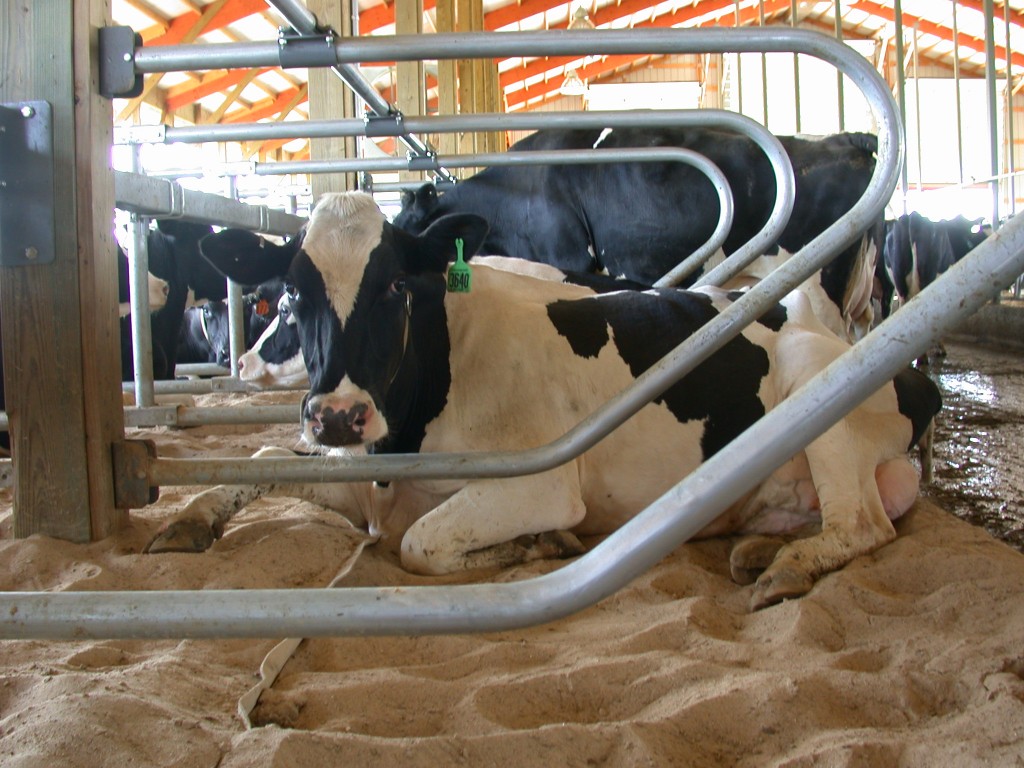
Hard-pressed dairy farmers could save themselves thousands of pounds by switching from straw to sand bedding.
And they could save themselves thousands more by recycling the sand used for the bedding.
One company, Opicon, says it can cut bedding costs by 90 per cent with its new state-of-the-art recycling system.
Dairy farmers have been caught up in a huge financial crisis caused by falling prices.
Some farmers have already looked at ways of improving the economics of their dairy operations to combat the crisis, but Opicon believes others could benefit financially by finding ways to cut costs and increase production.
"About 40 per cent of dairy farmers in Denmark now use sand bedding and it is growing all the time," said Frank Andreasen, sales manager with Opicon.
"Results show that there is a benefit of £170 per cow per year from using sand bedding rather than straw.
"The cows suffer from less mastitis, they have less inflammation of the leg joints, there is a lower cell count in the milk because bacteria cannot survive well in sand and production is better.
"Each cow produces, on average, one litre of milk more each day because it tends to rest longer."
'More than £20,000 a year'
In the United Kingdom, where the average herd size is 133 cattle, the economic benefit would be more than £20,000 over a year.
In Scotland, where the average herd is 192 cattle, the benefit would be more than £30,000.
Frank says that even more savings can be secured through recycling the bedding sand.
Opicon has developed a new recycling system incorporating a highly efficient sand washer, and he says it is able to cut a farm’s bedding bill by as much as 90 per cent.
Farmers who the company already deals with use as much as 10 kilos of sand per cow each day, he says.
On an average size unit in the United Kingdom that would amount to 1,330 kilos of sand each day for the herd.
By using the Opicon recycling system, this daily requirement could be reduced by nearly 1,200 kilos – a total of nearly 437,000 kilos over the whole year.
That is 437 tonnes of sand the farmer would no longer need to buy each year. With the price of sand ranging from £15 to £20 per tonne, an average unit could save more than £8,000 each year.
Recyles bedding sand from farm's slurry
Opicon’s system recycles bedding sand from the farm’s slurry, so the financial benefit is not only to be seen in recovering the sand.
Savings are also achieved by reducing the volume of slurry waste that a farmer has to dispose of.
Waste water from the slurry is also recycled to use over and over again in the sand washing operation.
The system is automated, regulated by gauges and valves, and linked by computer to Opicon’s offices so that the company’s engineers can monitor the operation in real time.
Each system is individually designed to meet the needs of the individual farm, but all of them link the farm slurry pit through a series of pipes to the washing equipment and separators.
The recovered sand is automatically carried by augur and conveyor to a storage area on the farm for re-use.
Frank says that other sand recovery systems do exist, but he says the Opicon system is the only one to consistently achieve 90 per cent recycling rates.
The system is already up and running successfully in Opicon’s native Denmark, it has been installed on a farm in the Netherlands and Opicon has completed an installation in Germany.
